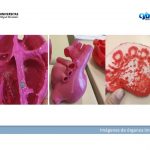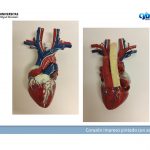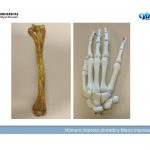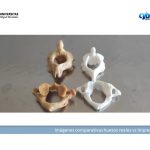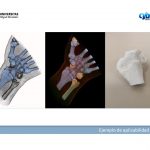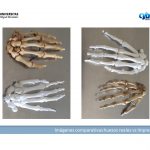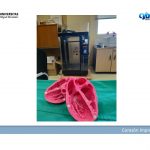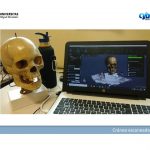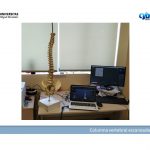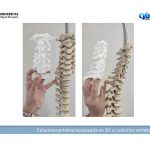3D Printing and Scanning
22 May 2024
In medical education, models printed in 3D technology facilitate learning about the structure of the human body, since they are created from real anatomical samples, they also allow a much higher durability.
These models are currently used in personalized preoperative pieces that serve as an aid in the preparation of complicated surgeries and therefore reduce the risk of medical errors and accelerate the patient’s convalescence.
In surgery, 3D technology allows a better understanding of the field of operation in which the surgeon will work during a complicated operation, as well as the creation of tools individually adapted to the anatomical conditions of the patient and personalized implants.

Through a 3D scanner, a virtual and three-dimensional image of a physical object is obtained. This image, formed by a cloud of points, will be transformed into a file with which, through specific software, we can make editions of the object, to later carry out a 3d printing of the final product.
3D printing is an additive manufacturing method that involves the deposition of layers of materials successively to create a construction from a digital model, thus producing three-dimensional objects.
The CYBORG Experimental Center has the following equipment:
Raise3d Pro 2 Plus Filament 3d Printer,
Which provides the following features:
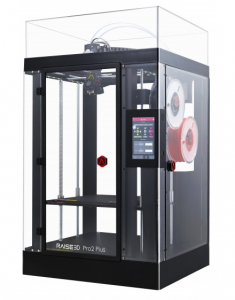
-
Dual extrusion with electronic lift. With the dual extruder you can print with two filaments at the same time, or use the second extruder to print with soluble supports, or use one extruder to define the outside of the part and the other to more quickly fabricate the inside.
-
Build volume of 280x305x605mm.
-
Up to 300ºC for greater material compatibility.
-
Wireless printing and control.
-
New generation motion control.
Portable 3D Scanner Professional Academy,
Which provides the following features:
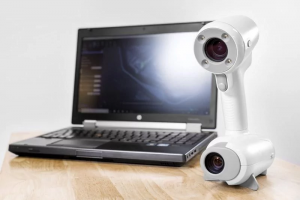 Maximum scan size (mm) : 380 x 380 mm.
Maximum scan size (mm) : 380 x 380 mm.- The technical specifications demonstrate its high levels of performance with an accuracy of up to 0.250mm and measurement resolution of up to 0.500mm/m.
- It uses structured white light technology to scan objects made of any material and of any color and surface type.
The services offered by the CYBORG Experimental Center are, among others, the following:
- Generation of downloadable editable designs in stl format of different anatomical parts.
- Realization of 3D models for the study of the particular characteristics of pathologies.
- 3D design of models such as tools, prostheses…, etc. in order to test it on cadavers.
Using a 3D scanner, light is projected on the object to be scanned, analyzing the surface of the objects and obtaining a three-dimensional point mesh that is exported to a file in STL or OBJ format so that the client can print it in this same Center or in your own printer.
Examples of objects created with the equipment of the Cyborg Experimental Center
This service is especially aimed at providing 3D printing and scanning services to:
-
Undergraduate and Postgraduate Teaching Students.
- Departments of the UMH.
-
Collaboration with Hospitals and Health Centers.
Projects that have had the participation of the technological equipment of the Cyborg Experimental Center
- Call for university teaching innovation projects PIEU 2020/2021 –
Prize for the action for disseminating teaching innovation Realization and use of 3D models in order to study the particular characteristics of specific pathologies for their compression or surgical programming.
- PIEU-UMH University Educational Innovation Program 2019-20
Realization and use of 3D models for the study of the particular characteristics of morphology in the fetal and pediatric population.
- Promotion of preparatory actions of preparatory actions to support the exploration and formulation of future research/innovation projects – Fisabio Foundation
Development of a 3D immobilization system for venous access in pediatrics.
- INVEPE project. PIEU-UMH University Educational Innovation Program 2021-22 – In preparation
3D Bones Project: Pilot initiative to improve anatomical learning.
![]()
The rates for these services, approved by the Miguel Hernández University of Elche, can be consulted at this link (pending approval)
The request for information or the request for a 3D printing/scanning service can be made by sending an email to or by calling 96 591 9270
